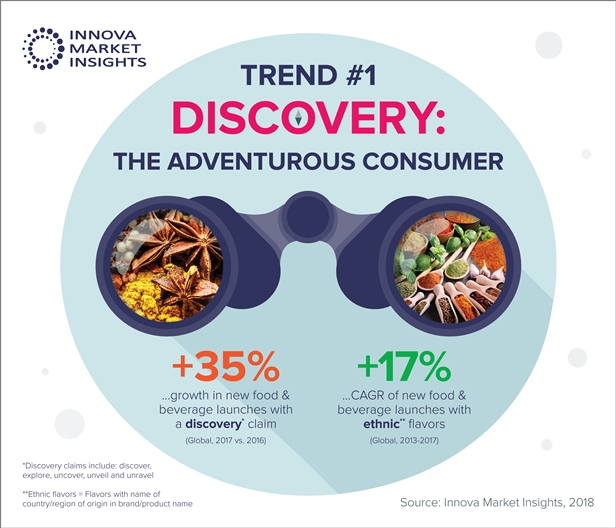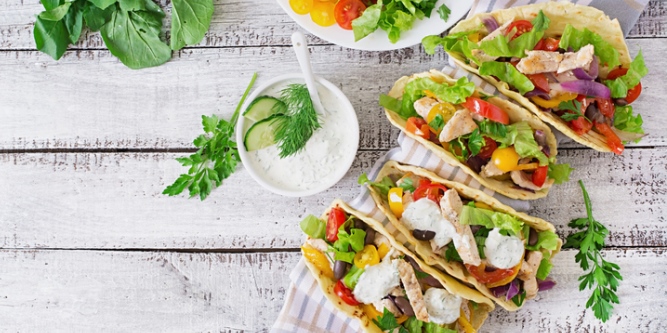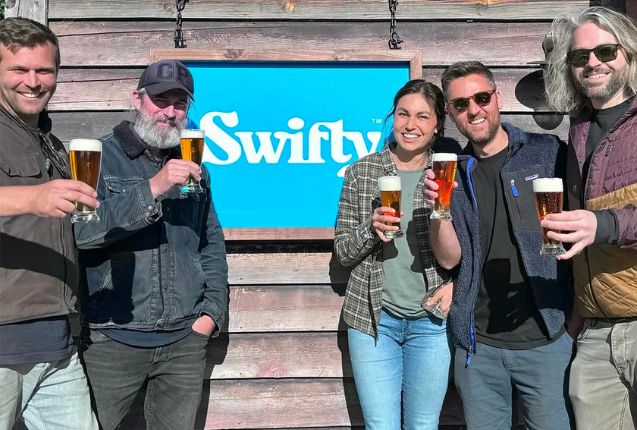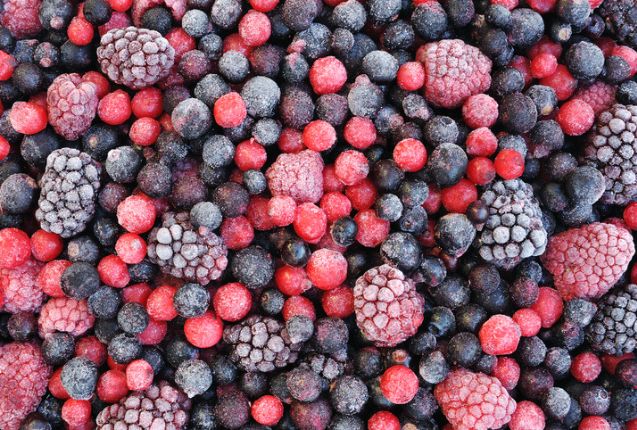Targeting increasingly adventurous consumers set on new discoveries and experiences will be key to product development in the food and beverage industry in 2019, according to Innova Market Insights.
The connected world has led consumers of all ages to become more knowledgeable of other cultures, contributing to 35% growth of a discovery claim in 2017 from 2016 (Discovery claims include: discover, explore, uncover, unveil and unravel).

Announcing the top trends for this year, Director of Innovation at Innova Market Insights, Lu Ann Williams, says: “Millennials are an important consumer group but ‘The Adventurous Consumer’ trend is larger and broader than just that.”
According to Williams, the world is getting more connected through social media and travel. “As an American living in Europe, I often notice sweet potato and pumpkin; those are very traditional American vegetables. Now they are trending flavours in many food applications,” she says. “Food is now entertainment, in and out of the home. Nowadays, you can experience eating like Marco Polo along the spice route in a London restaurant, try tasting menus or have anything you want to be delivered at home,” she adds.
“Meal kits are another way many consumers are learning and trying new things,” Williams reveals. “In the Netherlands, some retailers have introduced meal kits in the produce section and there are very traditional meals such as tomato soup, but there are also interesting twists on the classic favourites.”
“Big food manufacturers will have to think like small companies if they are going to compete for the hearts and minds of consumers. And now that ‘adventurous consumers’ can fact check anything; everything has to have a story behind it.”
Innova Market Insights’ top 5 trends for 2019

- Discovery: The Adventurous Consumer
The food and beverage industry is increasingly focusing on satisfying the adventurous consumer, with consumers moving out of their comfort zones to explore bolder flavours and multisensory food experiences. There is a focus on heightened sensory delivery, often combined with an element of the unexpected.
- The Plant Kingdom
The plant-based market shows no signs of slowing down and companies and brands are greening up their portfolios to attract mainstream consumers who want to add more plant-based options to their diets. For the mainstream consumer, going plant-based is about achieving a healthy and sustainable balance between meat and vegetables, rather than adopting an all-or-nothing way of eating.
- Alternatives to All
As more consumers pay attention to health and sustainability, replacement foods and ingredients are on the rise. Health remains the number one reason to buy food alternatives, with one in two US consumers reporting that health, is a reason for buying alternatives to bread, meat or dairy. The search for alternative proteins has resulted in rising use of black beans, lentils, peas, rice, nuts and seeds, chickpea and even insects as protein ingredients for foods. There is also development in new sources such as duckweed/water lentils.
- Green Appeal
The industry is increasingly committing to answering customer expectations around sustainability. This is driving corporate goals, as manufacturers commit to sustainable product and packaging development with a range of initiatives. This includes waste reduction through upcycled ingredients and post-consumer recycling, as well as improved biodegradability and new technology, such as compostable capsules and vegetable inks.
- Snacking: The Definitive Occasion
For most consumers, snacking is a part of daily life and always has been. What is changing, however, is the way people think about snacking and what is considered a snack. Snacking is no longer the optional extra, but the definitive occasion. It is a central focus of innovation across all food and beverage categories, with 10% average annual growth of global food and beverage launches tracked with a snacking claim over the past five years (CAGR, 2013-2017).



